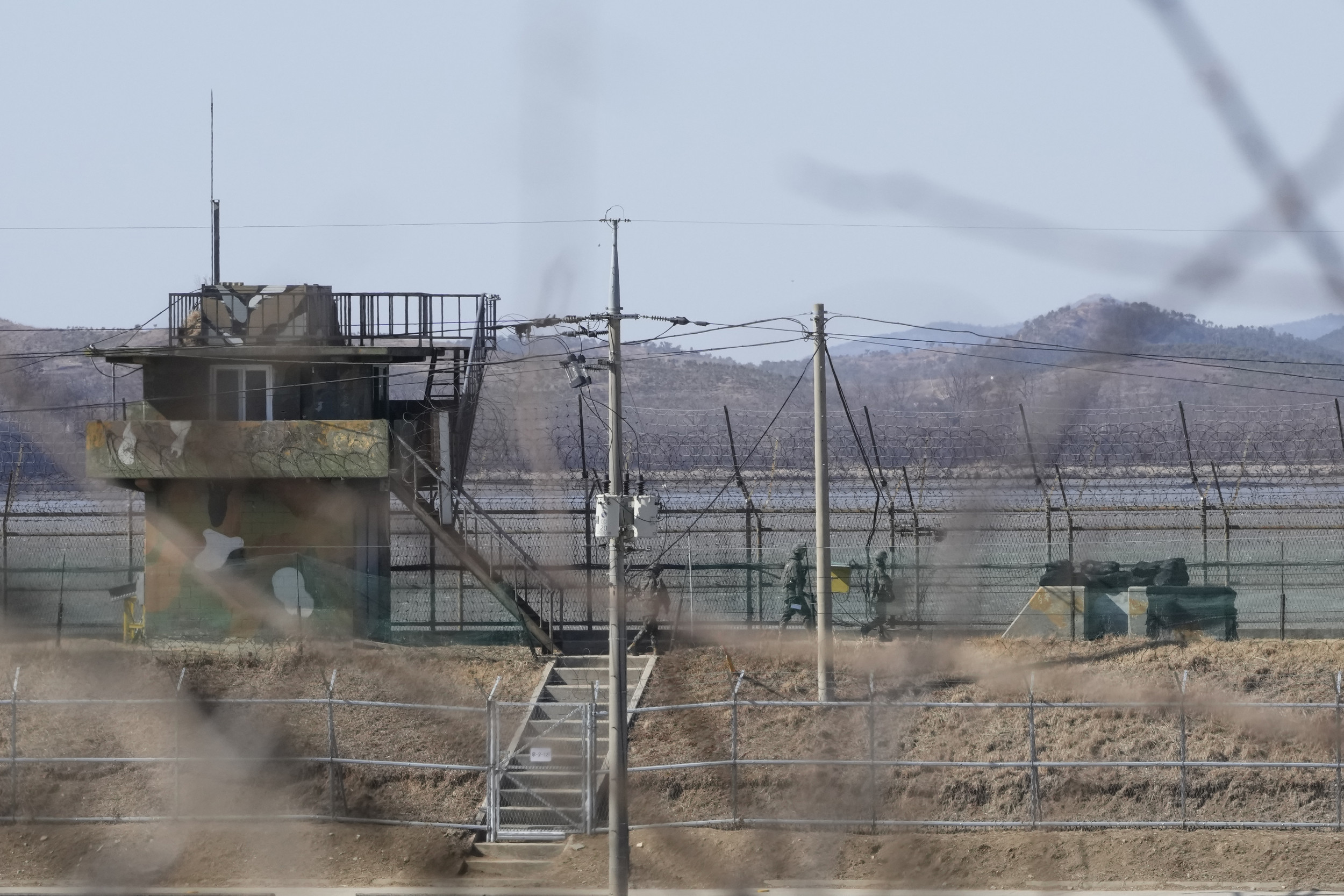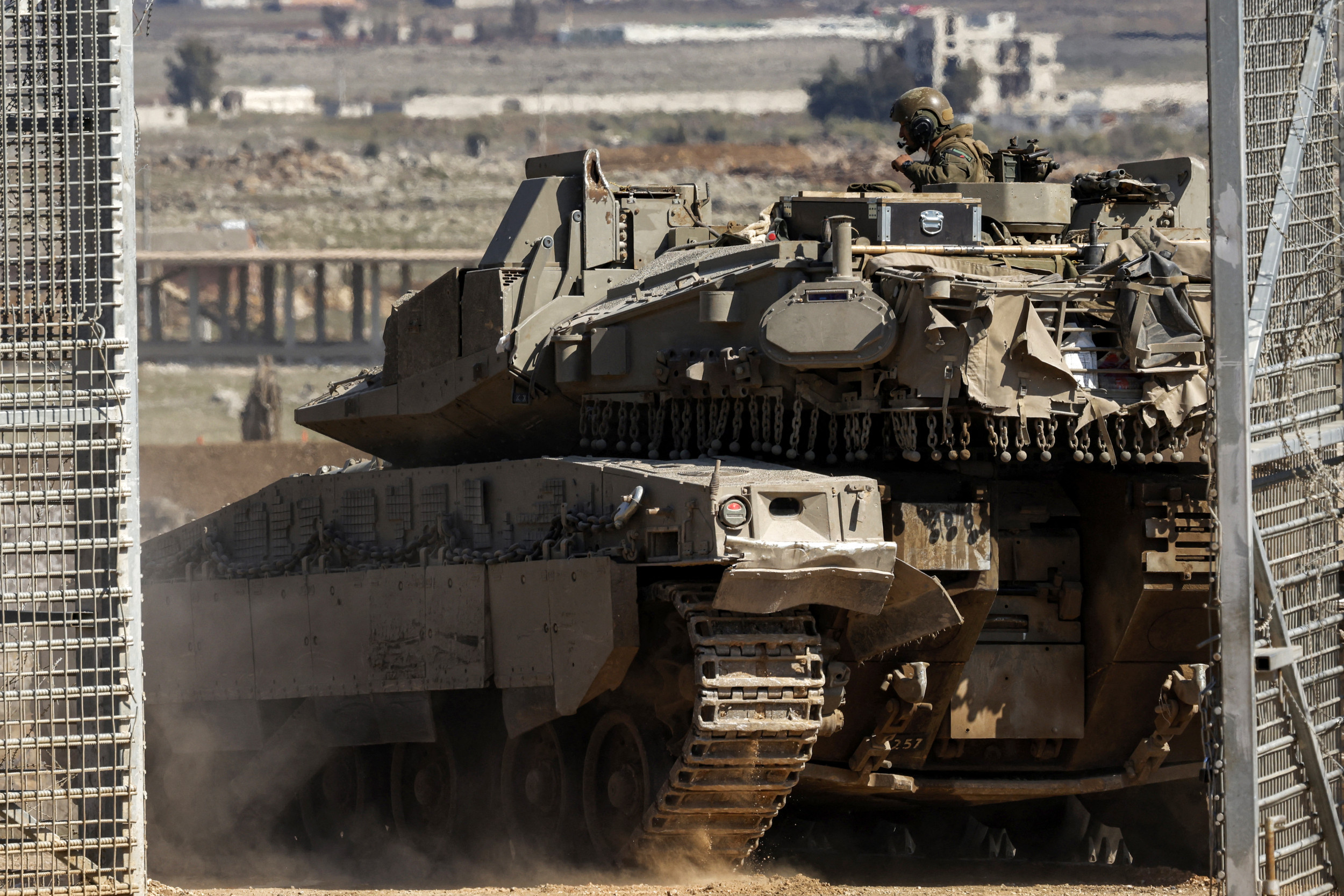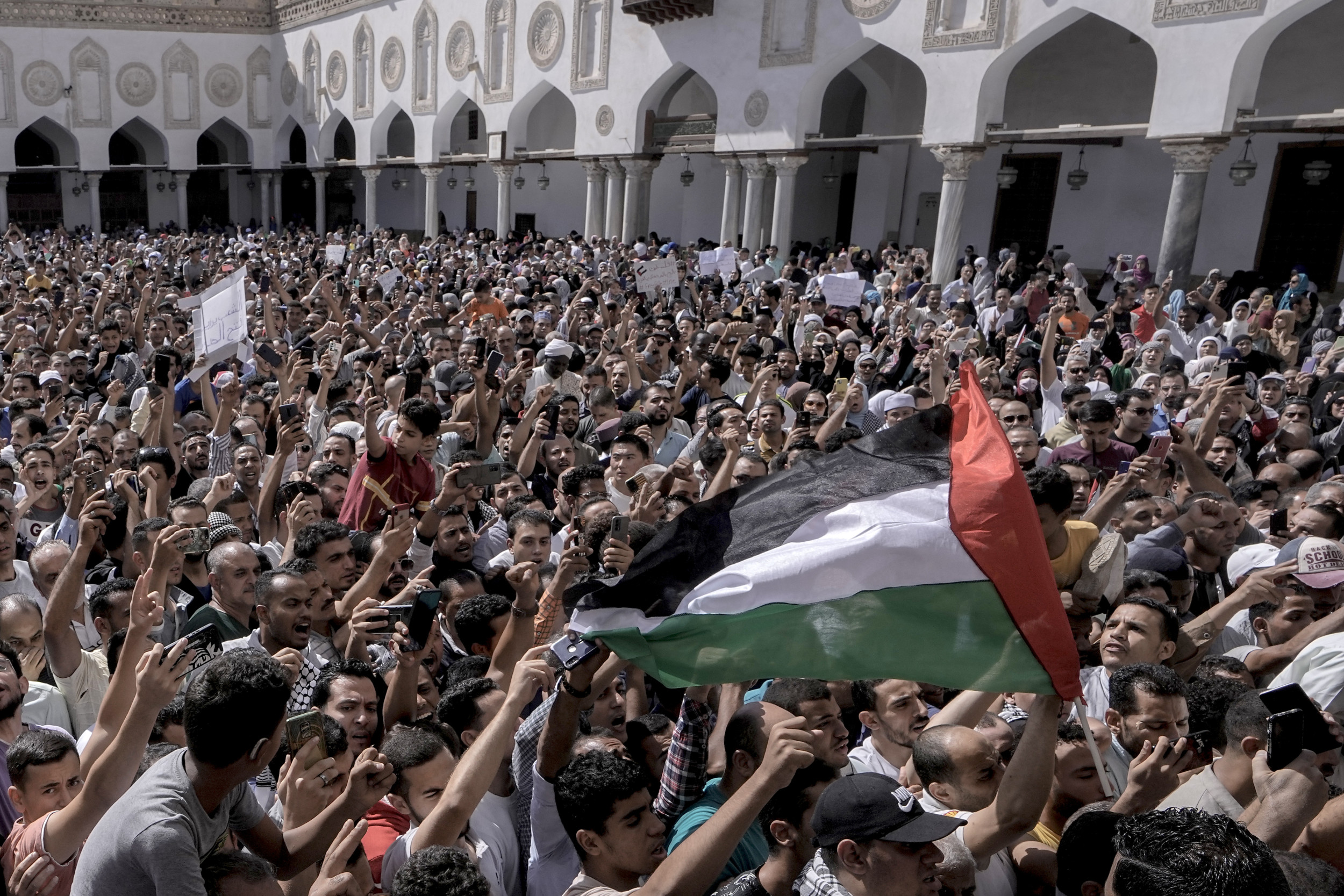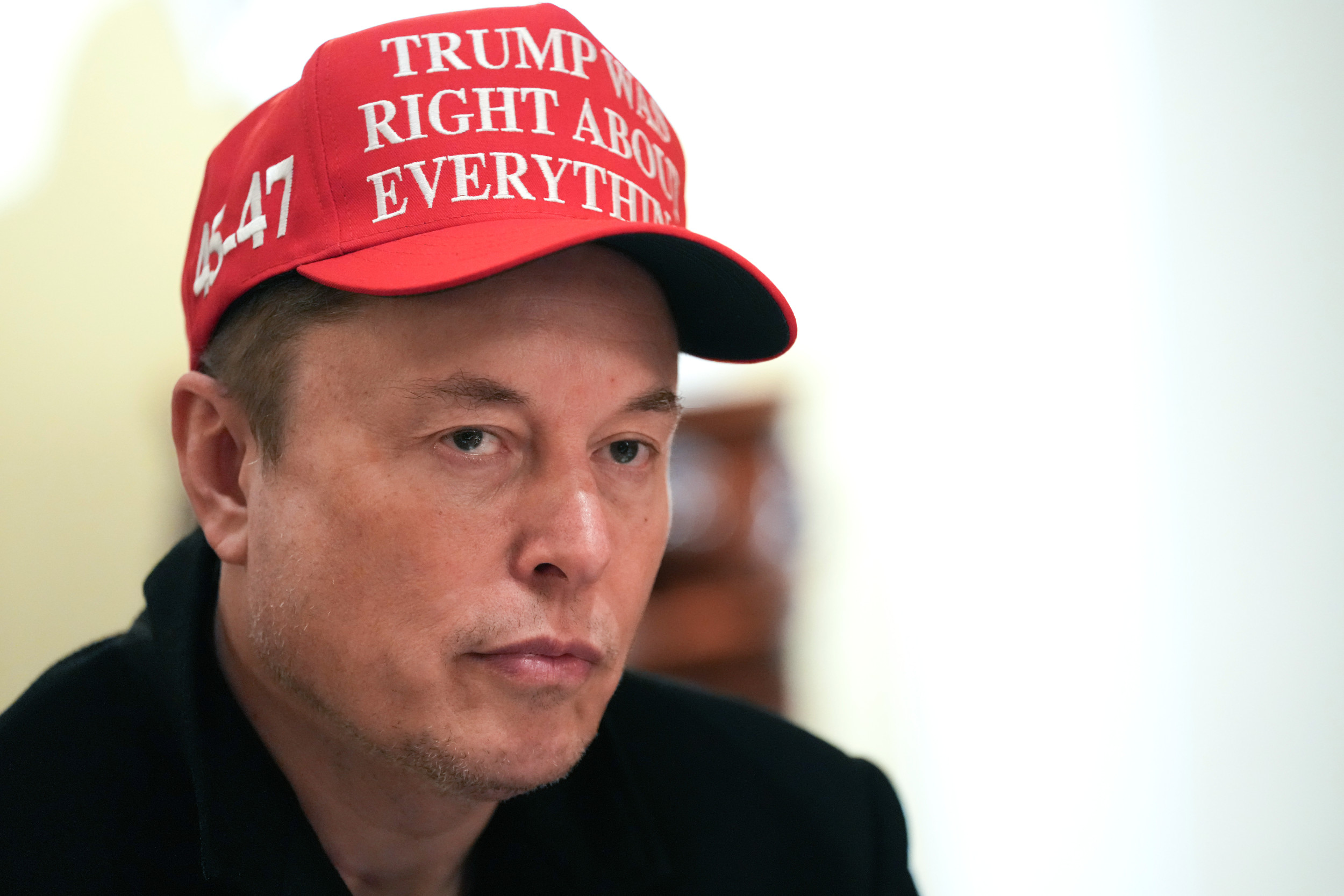President Donald Trump is considering indirect nuclear talks with Iran, according to a report by Axios, which cited two unnamed U.S. officials, while also preparing the ground for military strikes.
Trump and Iran's Supreme Leader Ali Khamenei have exchanged letters in recent weeks. Iran rejected direct talks with the U.S., which Trump had proposed, but said it would be open to indirect talks through Oman.
A U.S. official told Axios that, following the letters, "we are now exploring next steps in order to begin conversations and trust building with the Iranians," but that no decision on talks has been made.
Why It Matters
Trump wants to prevent Iran from developing nuclear weapons, a long-standing policy of the U.S. government. He hopes to achieve this diplomatically—though he quit a previous Obama-era nuclear deal with Iran—but has made explicit he is also willing to use force.
Iran and its proxies in Lebanon, Syria, Gaza, and elsewhere are on the back foot, under severe pressure from Israeli forces. Trump senses an opportunity to resolve the Iran nuclear issue in his favor while Tehran is weakened.
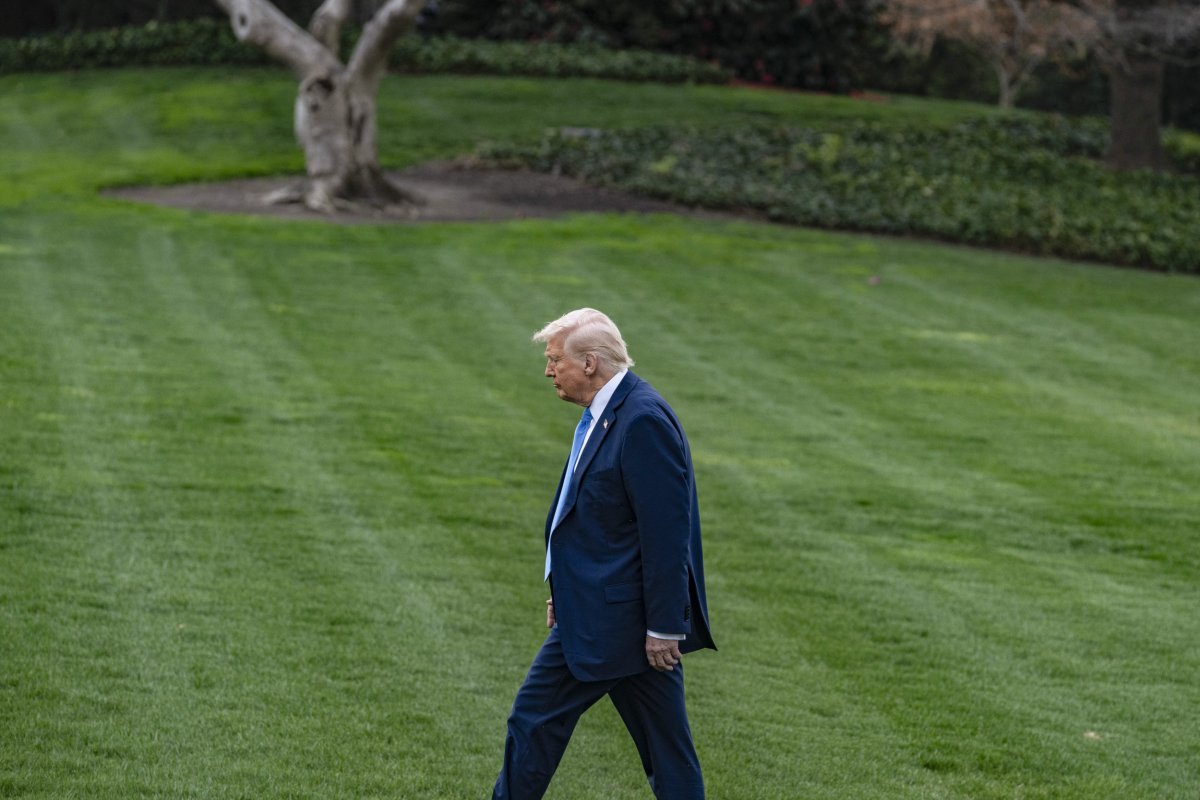
What To Know
Trump told NBC News on Sunday that, if the Iranian regime did not "make a deal" with the White House, "there will be bombing."
"It will be bombing the likes of which they have never seen before," Trump said.
Khamenei had warned the U.S. would face strong retaliation if Trump followed through on his threat to bomb Iran. In a statement on Monday, Khamenei said: "If they commit any mischief, they will surely receive a strong reciprocal blow."
The U.S. is already deploying more forces to the Middle East. This week, the Pentagon said the Carl Vinson Carrier Strike Group would join the Harry S. Truman Carrier Strike Group in the region.
Chief Pentagon Spokesman Sean Parnell said Secretary of Defense Pete Hegseth had "also ordered the deployment of additional squadrons and other air assets that will further reinforce our defensive air-support capabilities."
Parnell continued: "Should Iran or its proxies threaten American personnel and interests in the region, the United States will take decisive action to defend our people."
In his first term, Trump walked away from an earlier nuclear deal agreed with Iran by the Obama administration. That deal saw the loosening of sanctions on Iran in exchange for Tehran allowing inspectors into the country to monitor its nuclear program.
Trump said the deal was too soft on Iran and reimposed the sanctions.
Iran says its nuclear research is for civil energy purposes. The U.S. believes Tehran aspires to develop nuclear weapons—although its research is not currently active.
What People Are Saying
Director of National Intelligence Tulsi Gabbard told the Senate Intelligence Committee that the current U.S. assessment is that Iran "is not building a nuclear weapon" and "Khamenei has not authorized the nuclear weapons program he suspended in 2003."
However, Gabbard noted that U.S. intelligence agencies believe Iran has expanded its uranium stockpile, raising concerns among international observers.
"Iran's enriched uranium stockpile is at its highest levels and is unprecedented for a state without nuclear weapons," Gabbard said.
What Happens Next
Trump and his team will now decide if they can work with the Iranians indirectly on a new nuclear deal.
Conversations are taking place, but the growing number of U.S. forces in the Middle East show that Trump is serious about using American military strength if those talks go nowhere.
Update, 4/2/25, 10:19 a.m. ET: This article was updated with additional information.
fairness meter
About the writer
Shane Croucher is a Breaking News Editor based in London, UK. He has previously overseen the My Turn, Fact Check ... Read more
